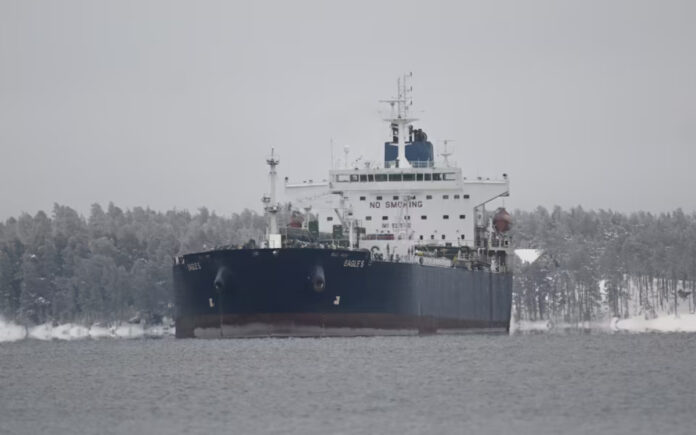Helsinki: Finnish authorities have revealed that the crew of an oil tanker accused of sabotaging undersea cables in the Baltic Sea were preparing to cut additional cables and pipelines when the vessel was intercepted. The head of the Finnish investigation, Risto Lohi, disclosed these details as Baltic Sea nations remain on high alert following a series of critical infrastructure disruptions.
On December 26, Finnish authorities seized the oil tanker Eagle S, which was carrying Russian oil. Investigators allege the vessel damaged the Finnish-Estonian Estlink 2 power line and four telecom cables by dragging its anchor across the seabed for over 100 kilometers (60 miles). At the time of its interception, the ship was reportedly threatening to cut another power cable, Estlink 1, and the BalticConnector gas pipeline, both crucial links between Finland and Estonia.
“There would have been an almost immediate danger that other cables or pipes related to our critical underwater infrastructure could have been damaged,” Lohi, from Finland’s National Bureau of Investigation, stated.
Expanded List of Suspects
Lohi confirmed that nine crew members from the vessel are now suspects in the case. The captain of the ship is Georgian, and the crew includes citizens of India and Georgia. Finnish authorities had initially placed eight of the 24 crew members under travel bans to secure the investigation.
“We have heard and interrogated the crew, and at the moment, we have nine crew members as suspects. They are under travel bans related to this to secure the investigation,” Lohi added. The investigation prioritizes individuals responsible for navigation and anchor operations.
Also Read | Rutte: NATO Must Innovate to Avoid 3.7% GDP Defense Spending
Related Incidents in the Baltic Sea
In a separate but related case, Baltic Sea nations suspect that the Chinese bulk carrier Yi Peng 3 is responsible for dragging its anchor and damaging two undersea fiber-optic cables in November. Sweden’s Civil Defence Minister, Carl-Oskar Bohlin, stated that traces of an anchor were also found near the NordBalt cable, a critical connection between Sweden and Lithuania.
“This obviously illustrates the seriousness of the situation we find ourselves in,” Bohlin said, emphasizing the growing threat to undersea infrastructure in the region.
The incidents underscore the vulnerability of underwater cables and pipelines, prompting NATO member states around the Baltic Sea to convene in Helsinki on Tuesday to coordinate their response to the escalating threat.



